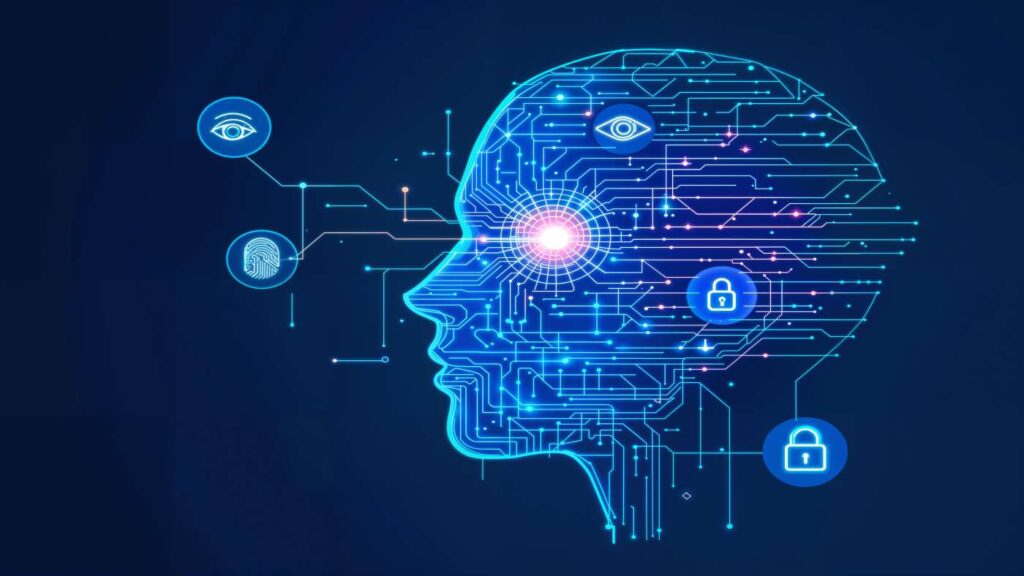Driven by the digital era, organizations and consumers are rapidly embracing the adoption of faster, more competent, and agile business approaches. Biometrics is one of such approaches catalyzing everyday business activities from office environment to commercial zone. Correspondingly, the growing use of Biometric Technology in a multitude of domains propelled by the tech-savvy users is further reshaping the application scenarios ranging from user access to the financial services ecosystem.

Biometrics in Workforce Productivity:
Undoubtedly, when it comes to workforce efficiency, Biometrics is the No. 1 technology used nearly in every organization from onboarding employees to enforcing limited access as a foolproof mechanism to:
- Maintain Regularity
- Mitigate Attendance Forging or Buddy Punching
- Boost Attendance Accuracy & Speed
- Improve Employee Engagement Rate in Workplace
With all the benefits and advantage of biometric-based attendance systems, the reach of biometrics is higher than ever before, even educational institutes have started using biometric attendance systems for their students and staff members.
Biometrics is Transforming Passenger Onboarding in the Aviation Industry:
Aviation industry across the globe is beginning to adopt Biometric Technology as a way of implementing not only seamless onboarding of passengers but also for contactless identity verification aimed at overcoming several setbacks of conventional manual checks, one of which is the time-consuming long queues.
Biometric-based onboarding system is also expected to reduce congestion while improving convenience of passengers in a number of ways including:
- Less dependency on manual verifications
- Faster and reliable authentication at checkpoints as a result of reduced documentation due to the legitimacy of Facial Recognition as compared to a years old passport.
- Empowering remote verification of ID documents thus optimizing and speeding up the overall process,
implying tremendous potential for market growth in the aviation sector for the biometric industry.
Is Biometrics the Future of Secure Banking?
The use of Biometric Technology is blooming in the Banking Sector not just in India but all around the world. Biometric enabled digital transactions such as Facial Recognition or Fingerprint mediated payments are way convenient and secure than PIN-based transactions, while abating cyber threats and frauds. Of all the mechanisms the financial institutions use, Biometrics is gaining momentum and found to be much more attractive than conventional authentication methods.
Banks also utilize Biometric Lockers to secure valuable documents and money of their customers and those can be accessed only upon successful authentication of the rightful users.
Role of Biometrics in Security Enhancement:
Biometric Technology is bringing a huge difference in terms of convenience and security compared to the conventional access control systems utilizing card or password-based authentications owing to its ability to identify distinctive biological attributes highly unique to each individual, thus making it virtually impossible to be imitated or stolen. This makes it much more difficult for fraudsters to impersonate the biometric templates, thereby reducing the risk of data breaches, identity theft, and other security-related issues.
Given this supremacy, a growing number of organizations use biometric integrated security systems to prevent unauthorized access.
Advantages of Investing in Biometric Technology from the Consumer Perspective:
Enhanced Convenience:
Biometric authentication is extremely convenient for users. They no longer have to remember complex passwords or carry around physical tokens such as access cards. Instead, they can simply use their biological traits such as Fingerprint, Finger Vein, Facial, Palm, Iris or Retina to access facilities or critical information, making the authentication process faster and easier.
Cost Savings:
Biometric technology can help organizations save money in various ways. For example, they can reduce the cost of password resets, reduce the number of physical access cards needed, and minimize the risk of fraud and theft. These cost savings can be significant, especially for larger organizations.
Increased Customer Experience:
Biometric technology can also improve the customer experience. For example, it can be used to speed up the check-in process at airports, hotels, and other places where identity verification is required as mentioned above. This can help reduce waiting time and improve overall customer satisfaction.
Security Compliance:
Many industries, including healthcare and finance, are subject to strict regulatory requirements when it comes to data security and privacy. Biometric technology can help organizations comply with these regulations by providing a highly secure way to authenticate identity and protect sensitive data.
Better Data Analysis:
Biometric technology can also provide valuable data insights for organizations. For example, they can use facial recognition to track customer behavior and preferences or use voice recognition to identify customer mindset in call center interactions. This data can be used to improve products and services, as well as marketing and sales strategies.
Is Startup in Biometric Technology a Good Choice?
In recent years, biometric startups have emerged as a significant player in the technology segment. These startups are leveraging biometrics to provide innovative solutions for various industries including Banking, Healthcare, IT, Public Facilities, Retail, Law Enforcement, etc.
One of the key drivers of the growth of biometric startups is the increasing demand for secure and convenient authentication methods. Traditional methods such as passwords or PINs are often vulnerable to data breaches and are becoming less reliable in today’s digital age. Biometric technology provides a highly secure and convenient way to authenticate identity, making it an attractive option for businesses and consumers.
Hence, the answer is yes and there are plenty of startups across the globe becoming successful as the biometric technology continues to evolve and mature and we can expect to see more startups emerging in this space and further distributions in the global market.